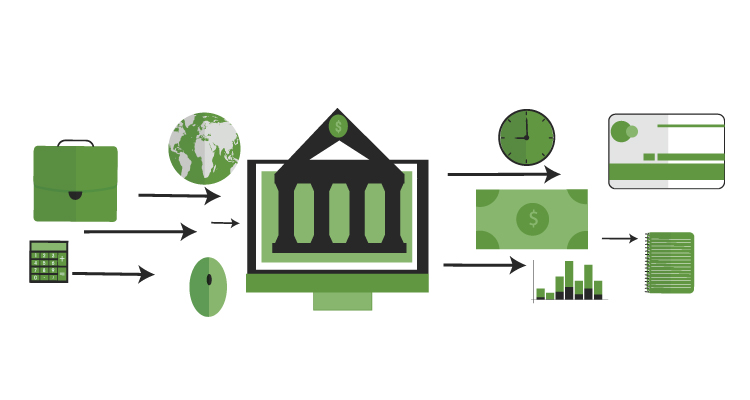So you want to start a business. You’ve probably thought out your idea thoroughly, and you might even have a business plan drafted. You’ve likely spent the last several weeks, or months, or even years thinking about the ins and outs of running your business, including all the expenses you’re going to face, the revenue you could potentially generate, and of course, what kind of profit you could turn. But how do you prepare you personal finances for business ownership?
Obviously, one of the most important considerations for a business’s success is the financial model on which it’s built—but your business’s finances aren’t the only financial angle you should be considering if you’re preparing to become an entrepreneur. Too many entrepreneurs think so far forward, they neglect their own personal finances, and end up failing or missing key opportunities because of it.
So why, exactly, are your personal finances so important for your business’s success, and what can you do to keep them in good order?
Why You Need to Prepare Your Personal Finances for Business Ownership
First, let’s take a look at the motivation for handling your personal finances before ever starting a business.
- Revenue and profit volatility. Businesses rarely make a consistent stream of revenue, especially in their first few months and years of development. It might be years before you break a profit, which means it will be difficult—if not impossible—for you to draw a salary or live off the profits of the business early on. If you’re already in a bad financial position, that volatility will make life even more difficult for you—and may require you to make even more personal sacrifices.
- Business demands. Businesses are expensive; you’ll have to invest in several big-ticket items, as well as dozens of small items that pop up every month. If your business needs a sudden influx of cash, and your business’s resources can’t accommodate the overflow, having a small personal stockpile can come in handy; that way, you won’t have to open a new line of credit or seek new funding to cover the gap.
- Though the worlds of personal and business finance are very distinct in some ways, they share a lot of similarities. Both require attention to detail, careful budgeting, and ongoing management and adjustment to be successful. If you spend a period of years getting your personal finances in order, you can use that experience to become a better business manager. Conversely, if you never learn the basics of financial management, you’ll have a hard time finding success in the realm of business finance.
- Image and credit. Your personal credit score can also have a bearing on your success as an entrepreneur. For starters, banks are going to look at your personal credit score when deciding whether to extend credit to your or your business (at least, when your business launches and doesn’t have a financial history of its own). In some cases, investors (like VCs and angel investors) may also check your personal history; if they see a delinquent financial past, they may be less willing to extend funding to your business, questioning your abilities as a fiscally responsible manager.
- Time management. Entrepreneurs tend to work long hours, into nights and weekends, and have packed schedules that make it difficult to find time for personal management. If you don’t get your personal finances in order before you become an entrepreneur, you may not have a chance to work on them once you become an entrepreneur. Think of your “pre-business” time as your last chance to get your personal life organized before your professional life begins to take over.
- The possibility of failure. Even if you’re optimistic about your business’s future, and it seems like the business should be profitable indefinitely, the failure rate of startups is high. If it fails, you’ll be out of a job, and your primary intended source of income will immediately deplete. On top of that, you might have to deal with the lasting effects of debt. The better prepared you are going into your business, the better prepared you’ll be to handle this unfortunate scenario. As with most things in life, it’s better to hope for the best but prepare for the worst.
Strategies to Improve Your Personal Finances
We’ve established the importance of getting your personal finances in order before starting a business, but what strategies should you use to get there?
- Audit your position. Your first step should be running a full audit of your current position. How much are you currently making every month? How much are you currently spending, and how are you spending it? What debt do you currently hold? How much do you have in savings? How much do you have invested in long-term accounts, such as retirement funds? If you can’t answer these questions, you may not be aware of your current financial position. Seek to answer them confidently before moving on.
- Consolidate your debts. Debt is one of the biggest hindrances when starting a new business; if you’re strapped with debt payments, you’ll have less financial flexibility. High amounts of debt also increase your personal financial risk if the business doesn’t succeed. You can mitigate the effects your debts have by taking out a debt consolidation loan, which can reduce your total interest rate and collect your debts under a single umbrella.
- Eliminate your debts. While you’re at it, try to reduce your “bad” debts as much as possible. While your mortgage, auto loan, and student loans aren’t a big deal, you should enter the world of entrepreneurship with as little credit card debt and other types of consumer debt as possible. Start making more than the minimum payments, and get yourself to a respectable position before you try collecting money for your startup. You’ll thank yourself if your business isn’t able to generate as much revenue as you initially thought.
- Minimize your expenses. Assume that your business won’t generate enough profit for you to draw a reasonable salary; in this case, you’ll be relying on your personal savings, secondary income, and what little income you can draw from the business to get by. Accordingly, you should set new goals for your monthly expenses; aim to keep them as low as possible without significantly interfering with your lifestyle. That will likely mean canceling subscriptions, reducing your travel and consumption, and possibly even moving so you can downsize your living space.
- Accrue an emergency fund. Before starting a business, you definitely need an emergency fund—at least six months’ worth of expenses. This will provide you with a cushion in case your business isn’t generating revenue, or in case it goes under unexpectedly. It will also provide you with a pocket you can draw upon in case the business needs an injection of funding to stay alive.
- Establish secondary lines of income. If you can, build at least one secondary line of income so it’s easier for you to stay afloat in case of business volatility in the near future. There are many ways to do this; for example, you could start a side hustle if you’re willing to put in some extra hours of work. If not, you can also establish a secondary line of income using rental property, or by withdrawing dividend payouts from your stock investments.
- Improve your credit score. It’s a good idea to boost your credit score into the “excellent” range, if you can. This will make it far easier for you to get any loans you need, you’ll get better terms on any financial products you use, and you might even look better to prospective investors. Improving your credit score takes months, or sometimes years of effort, but is easy so long as you make your payments on time, limit your debt, and avoid opening too many lines of new credit.
- Save for your initial business investments. After minimizing your expenses and setting up a second line of income, you shouldn’t have a problem setting aside some extra money, on top of your typical savings, to put into your business. This initial lump sum will help you fund your licensing fees, equipment, space, and other immediate investments.
Are You Financially Ready to Own a Business?
So how can you tell if you’re personally financially ready to start your own business?
- You understand business costs. If you understand how much your business needs, and what it requires to become profitable, you’ll be in a good position of financial knowledge.
- You’re free of bad debt (or close to it). You don’t have to be completely rid of your bad debts, but you should be in the process of eliminating it, and you should have it under control.
- You have a good or excellent credit score. The better your credit score is, the higher your chances of success will be.
- You have money to spare. Make sure you have some cash set aside for more business expenses, and some as an emergency reserve.
If all these prerequisites apply to you, and you feel confident in your business idea and ability to manage the business moving forward, you should feel ready to take the next steps. With your personal finances organized and under control, your chances of business success will be even higher.
















